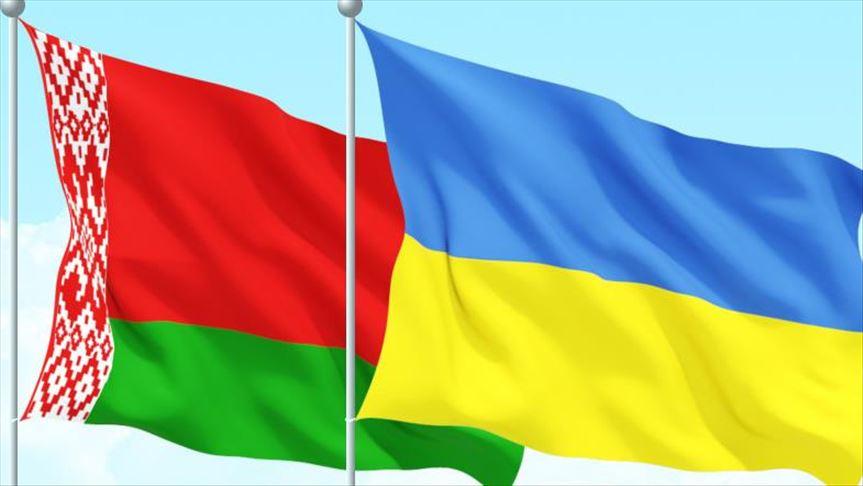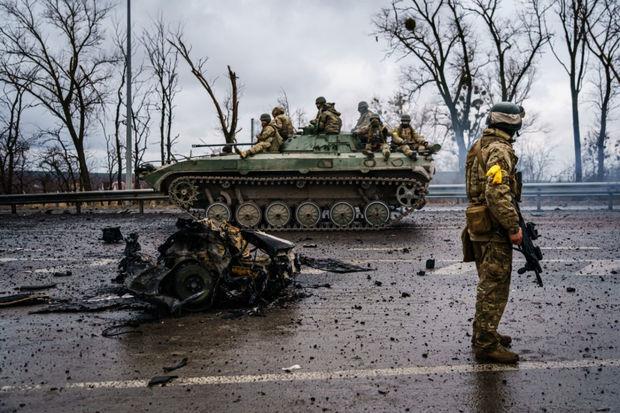"Russia persistently demands, and Belarus avoids war in Ukraine in every way possible" Valeriy Karbalevich for Caliber.Az
Caliber.Az presents an interview with Belarusian political analyst and publicist, Candidate of Historical Sciences Valeriy Karbalevich.
- For what purpose does Belarus create an operational command on the border with Ukraine?
- Recently, negotiations between Presidents [Aleksandr] Lukashenko and [Russian President Vladimir] Putin took place in Sochi, which lasted as much as four and half hours. Based on their results, it can be assumed that Russia is persistently demanding from Belarus more active participation in the war in Ukraine. Minsk is not interested in this, so Lukashenko comes up with various imitation events. Yesterday [May 27] he held a meeting at the Defence Ministry, during which he spoke about the serious threats to Belarus from the West, and North Atlantic Treaty Organization (NATO). The meaning of his statements is that if the armed forces of Belarus begin to actively participate in Ukraine on the side of Russia, then the western flank and western border will be exposed, and then NATO can pass through the territory of Belarus to Moscow without obstacles. Therefore, the Belarusian Armed Forces protect the Union State (a supranational organisation consisting of Russia and Belarus) from the West and cannot participate more actively in the war in Ukraine. This is such a scheme invented by Lukashenko, which gives him an argument not to participate in the war. Therefore, Lukashenko is ready to bring the combat forces into a state of rapid reaction, operational command, in general, to do anything, resort to any imitations, just so as not to participate in the Ukrainian war.
To some extent, these imitations help Russia, as they delay some part of the Ukrainian Armed Forces to the north, to the border with Belarus, in case the Belarusian army advances. Thus, they reduce the ability of the Ukrainian Armed Forces to participate in the war in Donbas. So there is indirect help from this. The problem is that Russia would like more, but Lukashenko does not want this.

- You used the phrase "in case the Belarusian army advances". So you don't rule out that possibility?
- I think that the political and military leadership of Ukraine does not rule out such a possibility in the first place. As for the real participation of the Belarusian Armed Forces in the war, theoretically yes, such a possibility cannot be completely ruled out. But I think that the probability of such an event is very small. Moreover, the further the war in Ukraine goes, the less likely it is. First of all, because the war is very unpopular in the Belarusian society, no one wants Belarus to participate in it. In addition, the war is obviously unsuccessful for Russia. If it were successful, it would be possible to get some dividends and trophies from this. In this case, only the minuses are obvious in the form of losses, including economic losses due to Western sanctions.
- Good. Then why did Belarus buy Russian Iskanders (ballistic missiles)?
- Firstly, there are serious doubts about the very fact that Belarus really bought Russian missiles, especially amidst Lukashenko's contradictory statements. Judge for yourself. If he says that by the end of the year Belarus will create its own Iskander-type missiles with Russian help, then why does he buy from Russia if its own will appear by the end of the year? On May 10, he said that Belarus planned to buy Russian missiles and on May 19 he said that they had already bought them. I doubt that such a difficult operation can be done in such a short time. There is likely a serious element of bluff here - another way of putting pressure on the countries of the West, a kind of attempt at blackmail. The tactic is something like this: let's talk to me, and we will have a dialogue, otherwise, you will feel bad. Last year, he threatened a migrant crisis, and finally got it done. All this is being done to force the West to lift sanctions against Belarus. How likely the appearance of such missiles as the property of Belarus is a big question. Yes, the fact that Iskanders are on the territory of Belarus is a fact. But these are Russian weapons, which were introduced at the onset of the military operation in Ukraine and are yet to be taken out. The extent to which the Belarusian side can use and manage it is also in doubt.
- These missiles pose a threat to Ukraine, although they are addressed to the West. So right?
- They are addressed to the West, and Ukraine, and even Russia. The message to the latter is this: they say, look what a devoted ally I am. Besides, it is a message to the local population that the leadership is in full control of the situation. This is about bolstering the country's leadership's position in the eyes of the ruling elite, the security forces, and the segment of the population that supports Lukashenko's policy.
- How do you assess the level of the Belarusian army at the moment?
- It is difficult to evaluate it as it isn’t clear what to compare with. Any army shows its combat capability during the war. It has now become clear that the combat effectiveness of the Russian army is largely exaggerated since it was the war that showed how combat-ready it was. I think that its combat effectiveness and strength are approximately equal to the political and economic weight of an average country in terms of population, territory, and economic potential, which can allow maintaining an average level of weapons. Our army is stronger than that of the Baltic states but weaker than that of Poland and Ukraine.

- Some Belarusians take part in hostilities in Ukraine. Can these individuals escape criminal liability?
- In the Belarusian legislation there is criminal liability for mercenaries. That is, if Belarusians participate in someone else's war as mercenaries, then this is a crime under the law. But in reality, some part of the Belarusian citizens participate in the war on the side of Ukraine, a battalion named after Kalinovskiy, the national hero of Belarus, was created, which led to the uprising of the Belarusians against the tsarist government in 1863. Now they seem to be trying to turn this battalion into a regiment, it is being created as a division of the Ukrainian army, under the patronage of the Ukrainian Armed Forces. Most likely, it is sponsored by the Ukrainian budget. At the same time, some of the Belarusians are fighting on the side of Russia as a private armed campaign (PMC), which causes serious discontent in the political leadership of Belarus. The leadership is afraid of the return of these people to the territory of Belarus, and from any side.
- Is this related to the point that these people pose a threat to the security of the country and are capable of destabilising the internal situation in Belarus?
- Yes. If political protests start again, and the confrontation becomes violent, then people who have gained combat experience in the Ukrainian war can play a role. This fact, of course, worries the leadership.
- How long do you think the war in Ukraine will last?
- I don't know. That's a very difficult question. While I see no end, the war becomes positional in nature, neither side wants to give in to each other. Therefore, I do not yet see the immediate outcome of hostilities. I believe that hardly anyone is able to give an accurate forecast regarding the timing of the end of the war in Ukraine.








